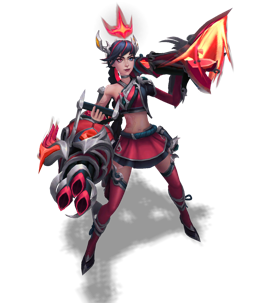In Netflix’s Arcane, the award-winning animated adaptation of League of Legends, few storylines are as haunting as the transformation of Powder into Jinx. One of the most frequently asked questions by fans is about Powder’s age during the first act of the series.
The answer—around 11 to 12 years old—is not just a minor detail. It is central to understanding the vulnerability, innocence, and eventual collapse that define her journey.
The Age Breakdown
During Act 1 of Arcane, Powder is introduced as a young girl, still clinging to childhood. She is portrayed as inventive and curious, always tinkering with gadgets, but constantly overshadowed by her stronger and more capable older sister, Vi. At this stage, Powder is only about 11 to 12 years old, while Vi is generally depicted as 14 to 16.
This age gap between the sisters reinforces their dynamic: Vi naturally steps into a protective, almost parental role, while Powder grapples with insecurity and a desperate need for validation. Their relationship becomes the emotional core of the story—and the foundation for the devastating fallout that follows.
Impact of Powder’s Age on Arcane’s Story
Placing Powder at such a young age heightens the emotional impact of the events in Act 1. When tragedy strikes and her inventions inadvertently contribute to the deaths of those she loves, the trauma is magnified by her immaturity. At only 11 or 12, she lacks the emotional tools to process betrayal, loss, and rejection.
Her transformation into Jinx takes place after a seven-year time skip, positioning her at about 17 to 19 years old in the second half of the series. By then, the innocence of Powder has been replaced with the instability and chaotic energy of Jinx.

The stark contrast between the child viewers meet in Act 1 and the dangerous criminal she becomes underscores how deeply trauma at a young age can reshape a person’s identity.
Conclusion
Powder’s age in Arcane is more than just a timeline marker—it is the lens through which her entire character arc is understood. Being only 11 to 12 during her most formative and devastating experiences explains why her descent into Jinx feels so tragic yet believable.
Her story is not just one of reinvention, but of a child forced to grow up too fast in a world where survival often comes at the cost of innocence.
Written by:
Christian


